Kolmanskop Ghost Town#
by Dmitry Moiseenko,
member of the AirPano Team that is a member of the global-geography Consortium.
16 October 2017
with kind permission of AirPano
Many fantastic movies feature the idea of the global post-apocalypse: the majority of people are gone, megalopolises that once were noisy and full of life become empty and lifeless, the winds blow through deserted buildings and wild animals occupy former human dwellings. In fact, even now you can find many ghost towns on our Earth. One of them is Kolmanskop in Namibia.
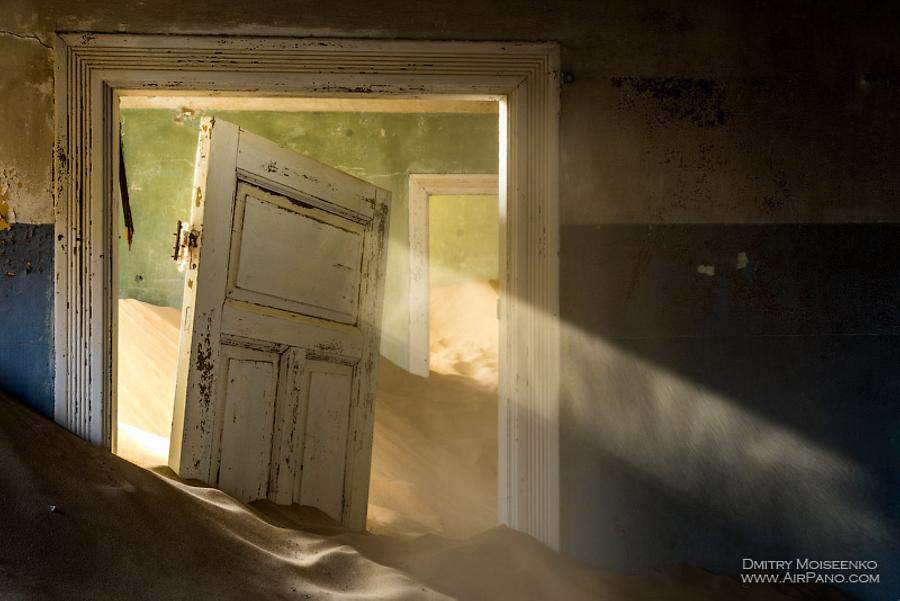
The story of this place is related to the period of the Namibian diamond rush that hit the country in the beginning of the 20th century. In 1904 the first diamond was found in Namibia and then lots of people rushed here in the hope of getting incredibly rich. One of them was a German August Stauch: he became a railway inspector in the area of the port town of Lüderitz lying on the coast of the Atlantic ocean; he was strongly interested in mineralogy and even obtained a permit for the exploitation of diamond fields.
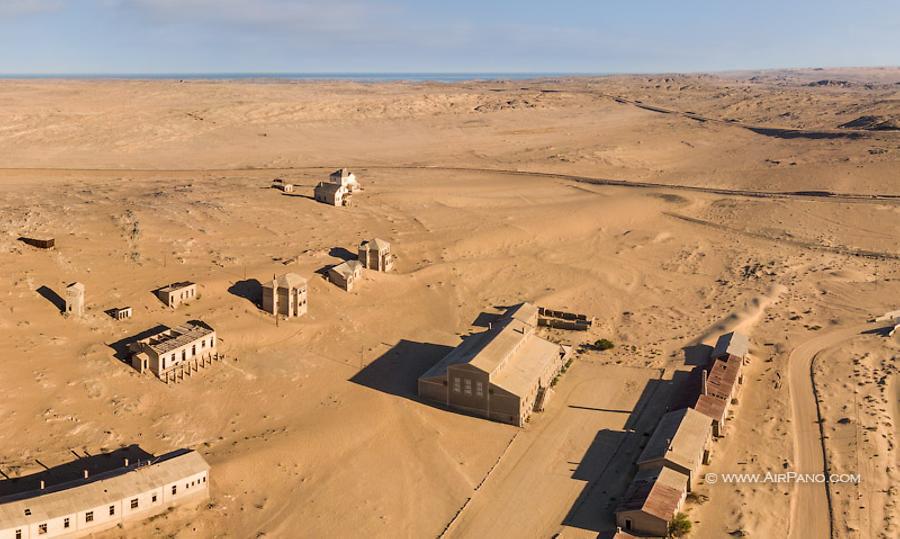
He asked his workers to look out for "unusually shiny stones". And one of them got the job done: in 1908, Zacharias Lewala picked up several small diamonds right on the surface of the desert. Stauch purchased the surrounding area and founded a settlement here.
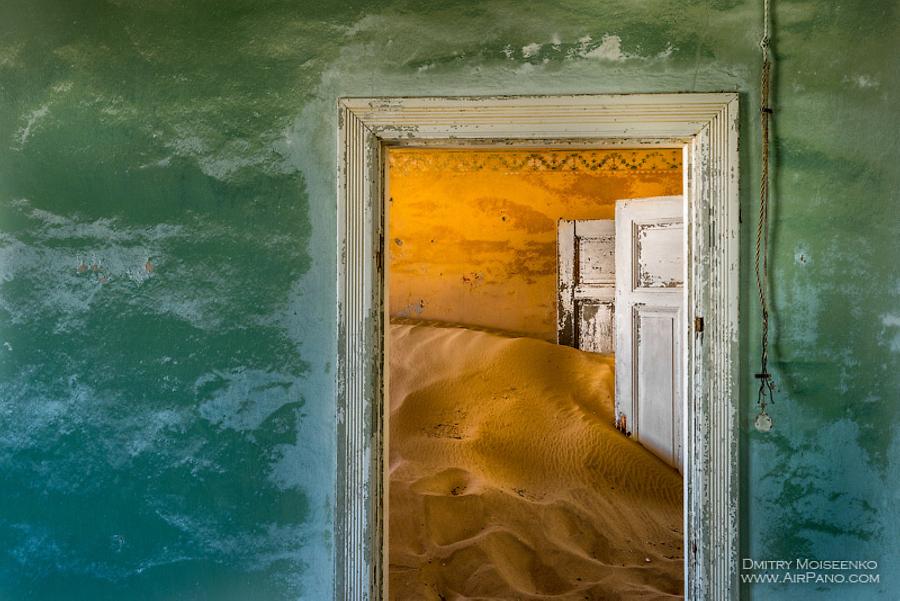
He invited fellow Germans for the exploration of the area and eventually, the town featured the architectural style of a German town with neat houses and institutions including a town hall, school, hospital, theatre, casino, and stadium. Moreover, the first x-ray station in the southern hemisphere was built, as well as the first tram in Africa started operating here.
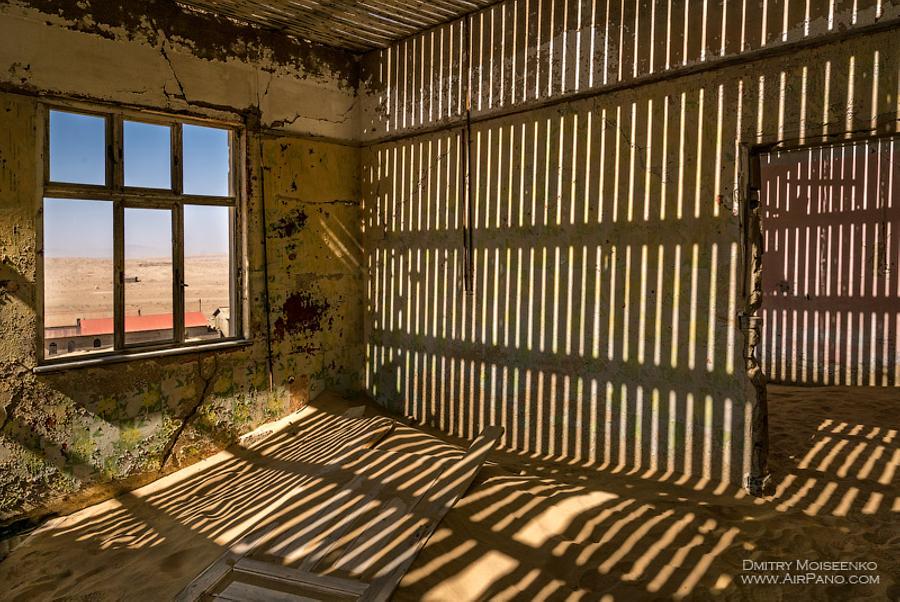
For around two decades the things were getting on well: even though the amount of the produced diamonds was not large, they were purely clear as all the Namibian diamonds. The nature of these diamonds is easily explained: the minerals were washed out from the ground by subterranean streams into the ocean; then the tide brought them ashore and the wind carried them away with the sand.
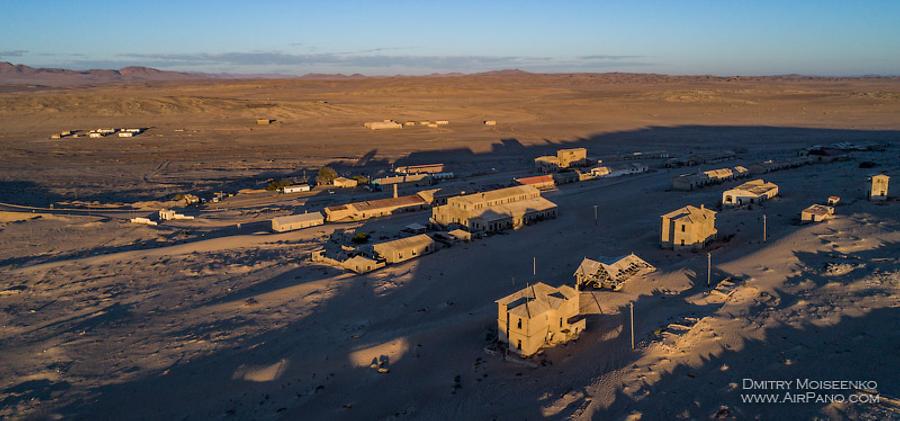
But the diamond field slowly started to deplete and there was no reason for people to stay here any longer. Little by little inhabitants started leaving their homes, and the discovery of the richest diamond-bearing deposits in Namibia in 1928 hastened this mass migration. A new diamond field was 270 km south of Kolmanskop and many of the town's inhabitants joined the rush to the south leaving their homes and possessions behind.
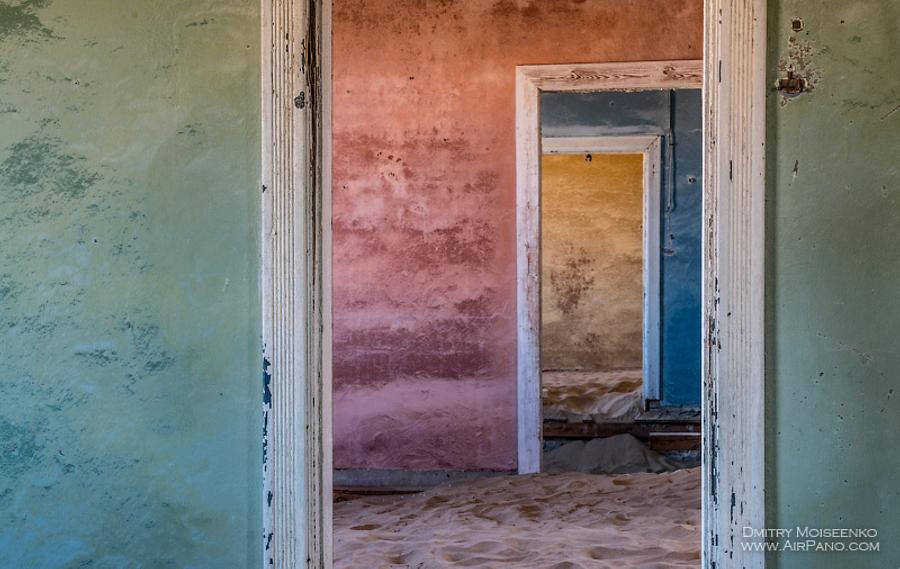
In the 1950s Kolmanskop was ultimately abandoned, but it can hardly be called totally deserted: this ghost town became a popular tourist destination. Now it is located within the restricted area of the Namib desert occupying around 26,000 sq. km along the Atlantic shore. These lands belong to a diamond-mining company. Although diamonds are mined on only 5% of its territory, the other area is a "buffer" and people need special permits to enter the town.
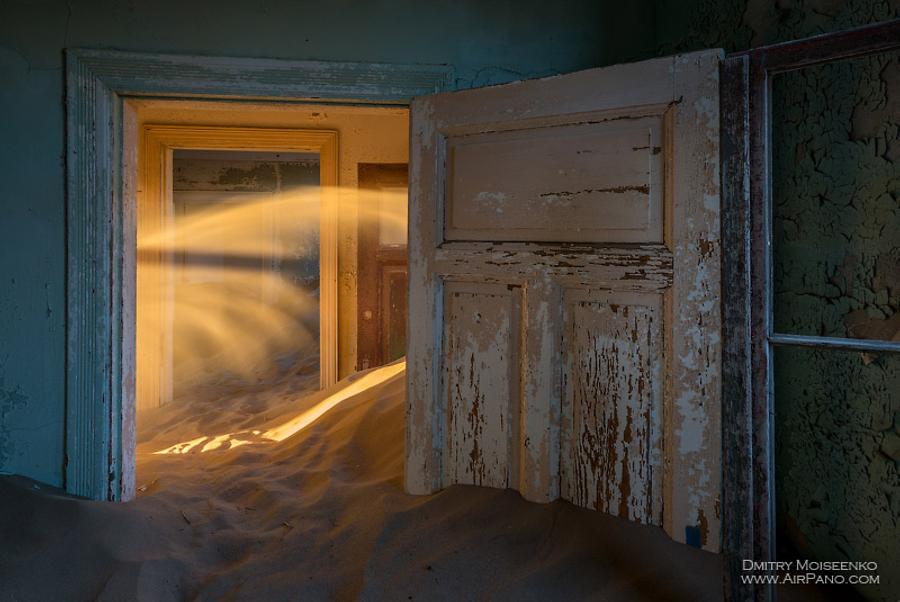
In the case of Kolmanskop, the solution is an easy one: the absence of diamonds is practically proved and permits can be bought right at the entrance of the town. The walk among abandoned houses with dead windows can provoke philosophical reflection, and you can make sure that it is true with the help of AirPano panoramas!
10 Panoramas of Kolmanskop Ghost Town